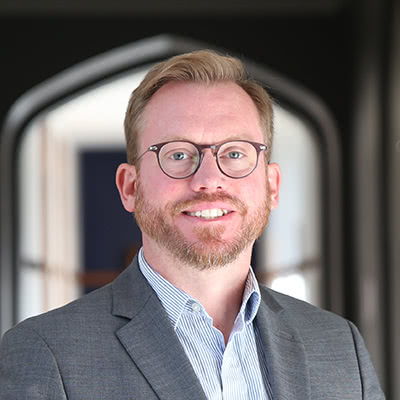
Dr. Gabriel Haley
Professor of English, Head of School for Trinity Academy
402-643-7189 Gabriel.Haley@cune.eduJesse Hall 216
Gabriel Haley is Professor of English at Concordia University, Nebraska, with research and teaching emphases in medieval and renaissance literatures, world literatures, and poetry. He has held teaching positions at the University of Virginia, Concordia College New York, and the Evanjelické Lýceum in Bratislava, Slovakia. He has published on the English and Latin poems of Charles d’Orléans, the influence of the phenomenologist Rudolf Otto on the educational theories of C. S. Lewis, the role of Dante’s poetry in popular culture, and on Petrarch’s contemplative humanism.
Dr. Haley is the advisor of Concordia's chapter of Sigma Tau Delta, an international English honors society. He is on the board of the Consortium for Classical Lutheran Education. He also is the president of the board of Trinity Academy at Concordia University.
Education
Ph.D., University of Virginia
M.A., University of Virginia
B.A., Hillsdale College
Selected publications
“Petrarch’s Secularized Contemplation,” Essays in Medieval Studies (2021, vol. 35)
Dr. Gabriel Haley's Academic Programs
Undergraduate
Classical Liberal Arts
The interdisciplinary classical liberal arts minor from Concordia University, Nebraska offers a traditional and rigorous engagement with premodern languages and cultures. At Concordia, this course of study encourages the classical pursuit of what is good, true and beautiful, considered within the light of Christian revelation.
English
Concordia’s English major promotes careful reading, encourages critical thinking and models Christian scholarship and thoughtful discussion processes. Ideally, our students will develop a desire to read more and appreciate the role of literature in exploring themselves, the human condition, and Christ’s response to humanity and to our students in particular.